15 Easy-To-Miss Mistakes That Can Seriously Stress Out Your Cat
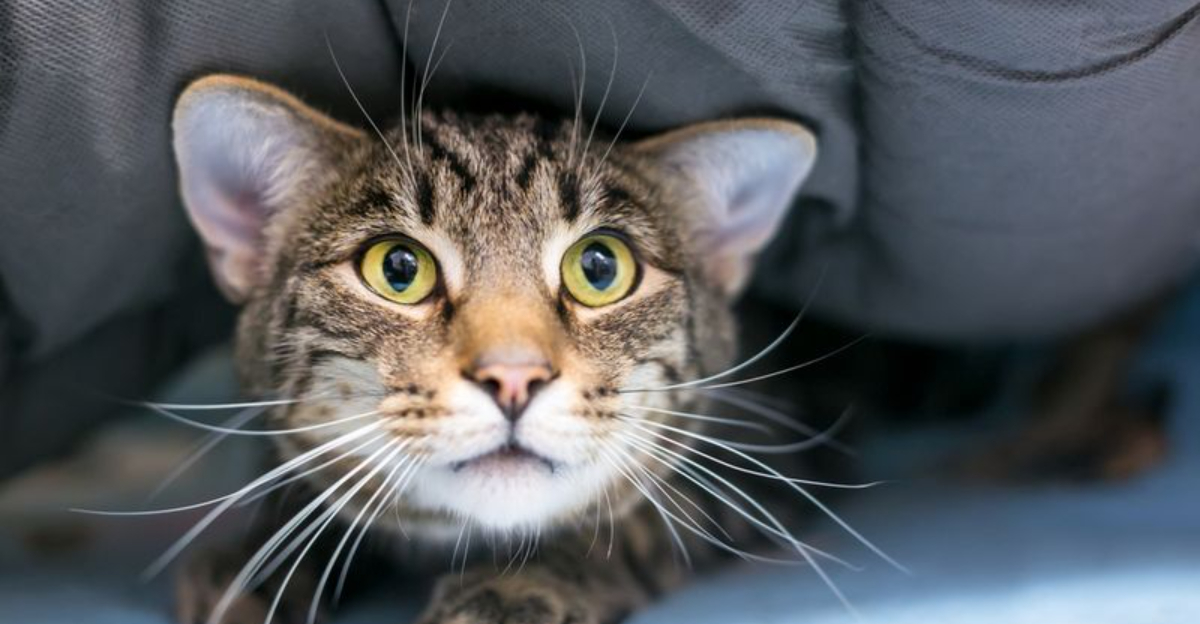
Ever wondered why your furry friend suddenly darts under the couch or gives you the cold shoulder? Cats may seem independent, but they’re actually quite sensitive creatures who react strongly to their environment.
Understanding what stresses your feline companion isn’t always obvious, especially when the triggers hide in our everyday habits. Let’s uncover those sneaky mistakes we make that might be turning your cool cat into a ball of anxiety.
1. Moving Furniture Without Warning
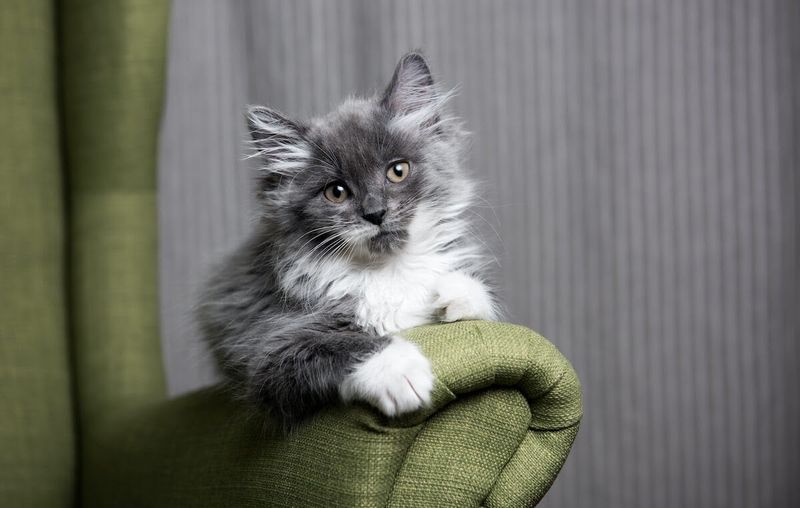
Cats are creatures of habit who rely on familiar pathways through your home. Suddenly rearranging furniture disrupts their mental maps and safe zones.
Your kitty uses furniture as navigation landmarks and security checkpoints. When these suddenly change, it’s like waking up in a strange place – disorienting and alarming.
2. Surprising Them From Behind

Sneaking up on your cat might seem playful to you, but it triggers their predator-prey instincts in all the wrong ways. Cats need to see threats coming.
Always approach from where they can see you. This builds trust rather than teaching them to be constantly on guard. Remember, even domesticated cats retain wild survival instincts.
3. Inconsistent Feeding Times

Imagine never knowing when your next meal might appear – stressful, right? Cats thrive on routine, especially regarding food.
Irregular mealtimes create anxiety about resource availability. Your cat may become obsessive about food or develop digestive issues from stress. Even shifting by an hour can trigger worry in sensitive felines.
4. Forced Socialization With Guests
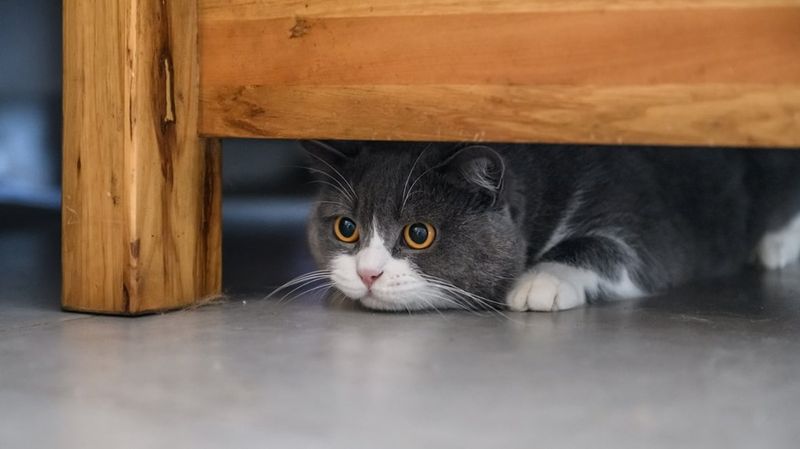
Grabbing your hiding cat to meet visitors creates lasting trauma. Forcing interaction contradicts their natural caution around strangers.
Let your cat approach guests on their terms. Create elevated escape routes and quiet rooms where they can retreat during gatherings. Many cats need hours or even days to warm up to new people.
5. Punishing Normal Cat Behaviors
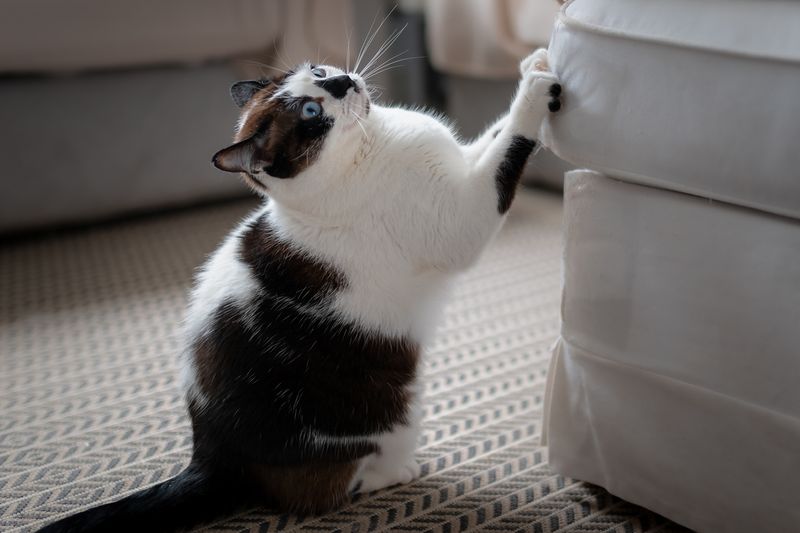
Scratching furniture isn’t rebellion – it’s how cats mark territory and maintain claw health. Punishment creates confusion and breaks trust.
Instead of scolding natural behaviors, redirect them appropriately. Provide scratching posts where problematic scratching occurs. Reward desired behaviors rather than punishing instinctual ones your cat can’t help expressing.
6. Loud Music or Sudden Noises
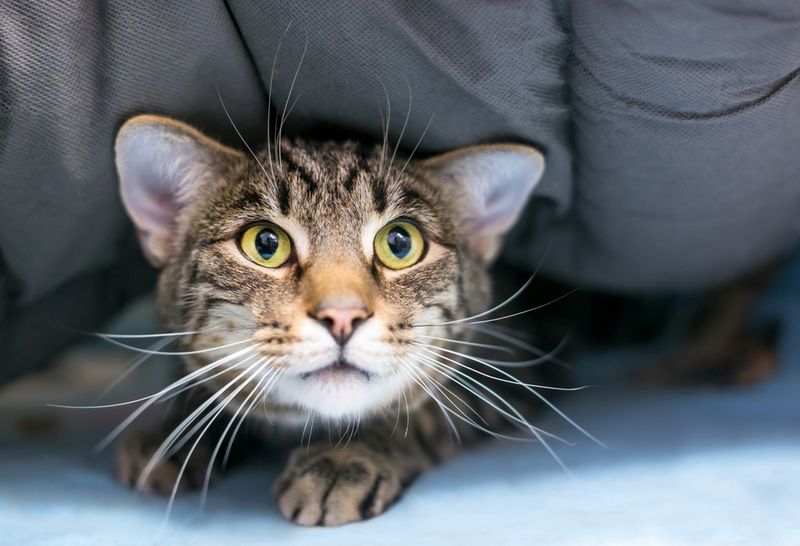
Those sensitive ears aren’t just for show! Cats hear frequencies humans can’t detect, making our normal noise levels potentially overwhelming.
Vacuum cleaners, blenders, and loud music can trigger fight-or-flight responses. Create quiet zones your cat can escape to when things get noisy. Consider how sound travels through your home from your cat’s perspective.
7. Skipping Regular Play Sessions
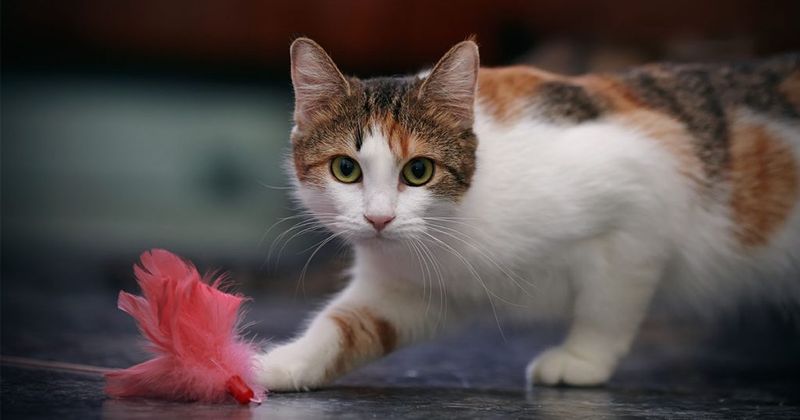
Wild felines spend hours daily hunting – your indoor cat still has those instincts with nowhere to direct them. Mental stimulation is as crucial as physical exercise.
Without playtime, cats develop anxiety, obesity, and destructive behaviors. Just 10-15 minutes twice daily of interactive play satisfies hunting drives and strengthens your bond. Wand toys best mimic natural prey movements.
8. Using Strong-Smelling Cleaners
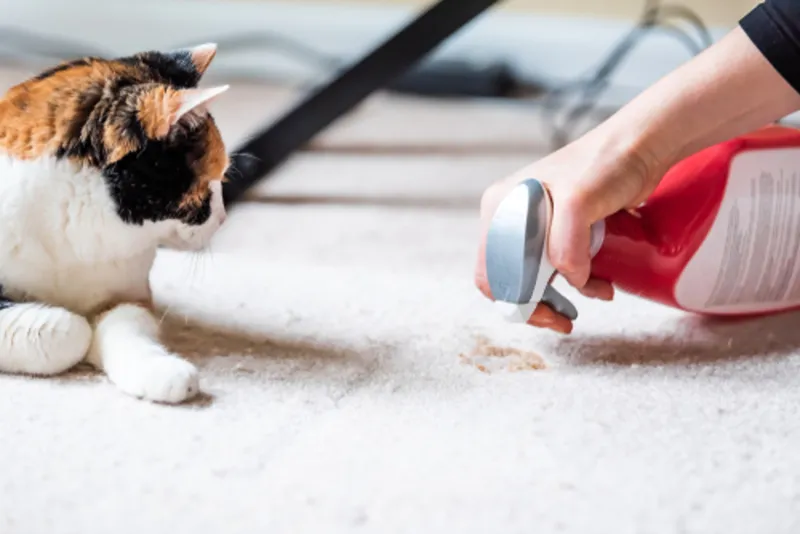
A cat’s sense of smell is 14 times stronger than yours! Harsh chemicals aren’t just unpleasant – they’re overwhelming assault on sensitive noses.
Citrus and ammonia-based cleaners are particularly distressing. Opt for fragrance-free, pet-safe alternatives, especially around litter boxes. Strong scents can discourage cats from using cleaned areas, leading to unwanted eliminations elsewhere.
9. Dirty Litter Boxes
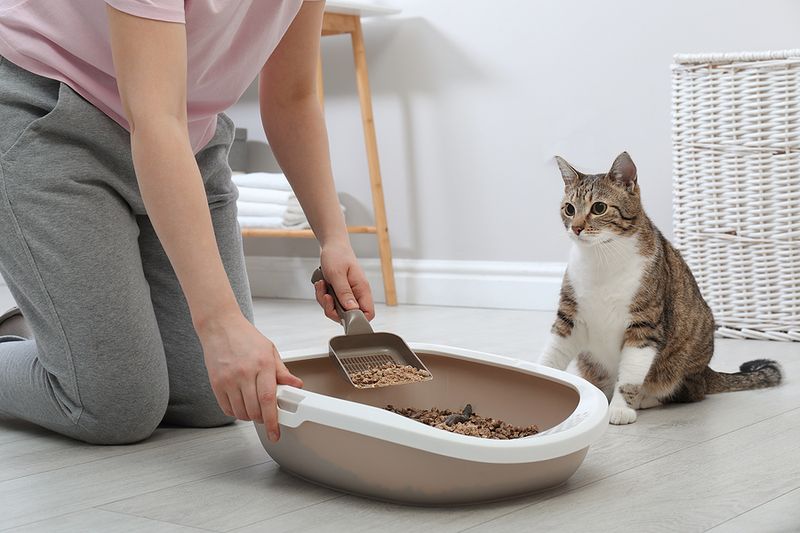
Would you use an unflushed toilet? Neither would your fastidious feline! Cats naturally avoid soiled areas – it’s an instinct to prevent disease.
A dirty litter box forces cats to choose between discomfort and biological needs. This creates anxiety and can lead to urinary tract problems from holding waste too long. Scoop daily and change litter completely weekly.
10. Bringing Home New Pets Without Preparation

Surprise! Here’s your new roommate! Sounds stressful, right? Cats are territorial creatures who need gradual introductions to new animals.
Proper introductions take weeks, not hours. Start with scent exchanges and separate spaces before visual contact. Rushing this process can create lasting hostility between pets and chronic stress for your resident cat.
11. Ignoring Body Language Cues
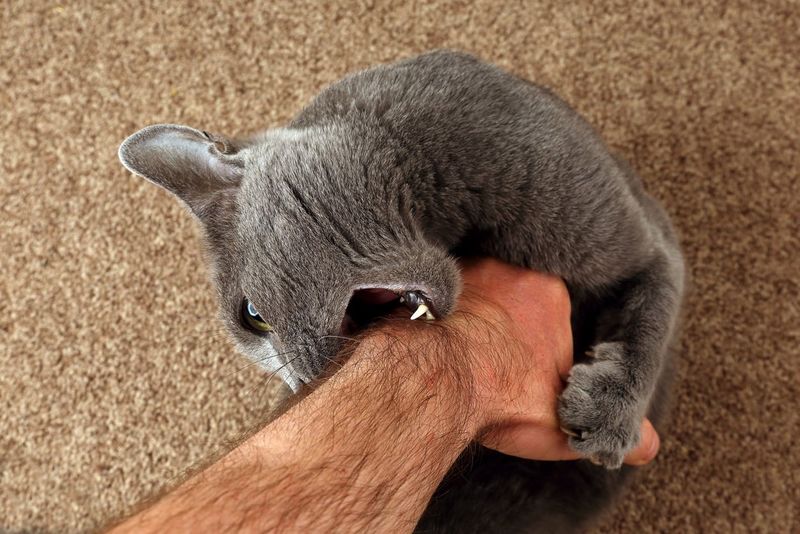
Cats speak volumes through subtle signals – tail positions, ear movements, and whisker placement all communicate their emotional state. Missing these cues leaves them feeling misunderstood.
Learn to recognize stress indicators like flattened ears, dilated pupils, and tail twitching. Respecting when your cat signals “enough” during petting prevents overstimulation and builds trust in your relationship.
12. Overlooking Vertical Space Needs
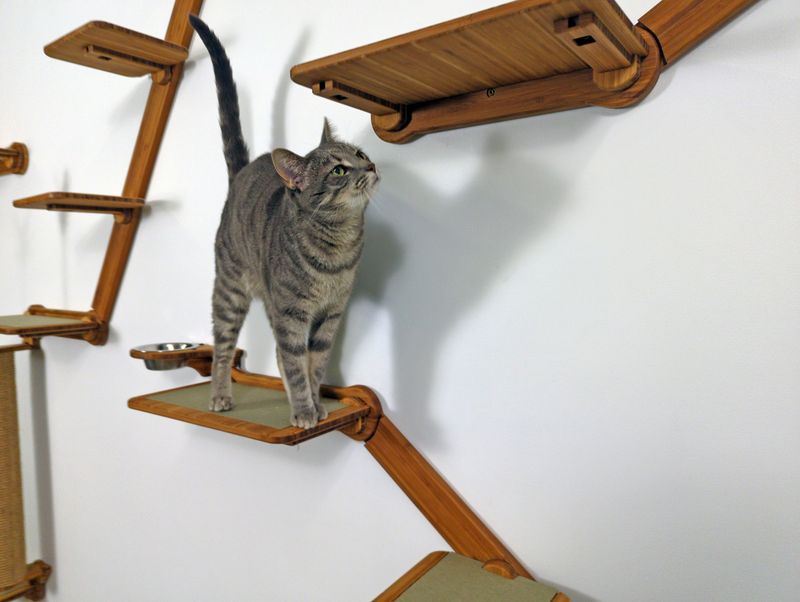
Cats are natural climbers who feel safest viewing their territory from above. Without vertical options, they lose crucial security and stress relief.
Provide cat trees, shelves, or window perches, especially in multi-pet households. Height allows cats to monitor their environment while staying safely out of reach – essential for their emotional wellbeing in limited spaces.
13. Medicating Without Technique
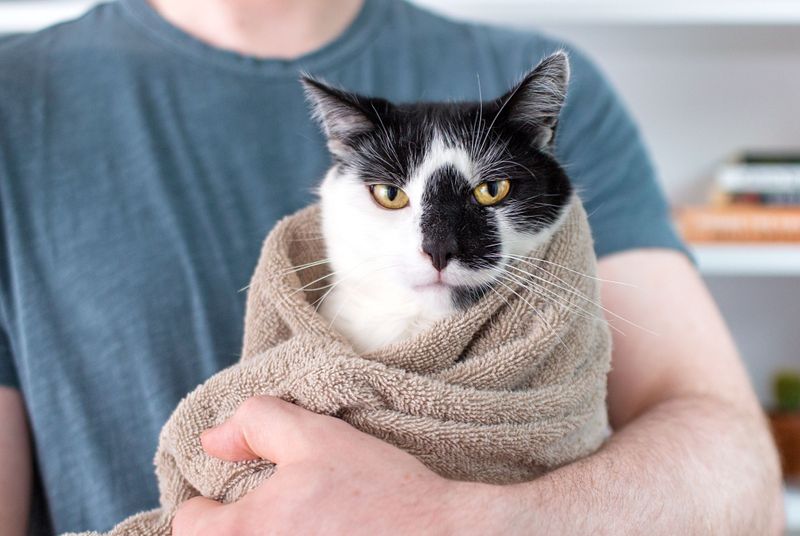
Wrestling your cat to give medicine creates trauma that makes future healthcare harder. The stress can even counteract medication benefits.
Learn proper techniques like gentle burrito wraps or pill pockets. Consider asking your vet about flavor options or alternative delivery methods. Taking time to make medication positive creates less stress for both of you.
14. Crowded Litter Box Placement
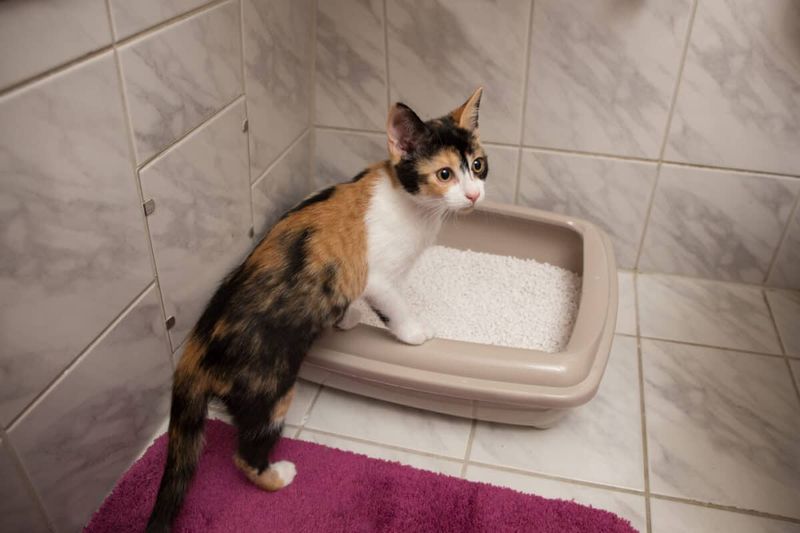
Tucking the litter box in busy hallways or next to noisy appliances forces cats to choose between privacy and basic needs. They need security while vulnerable.
Place boxes in quiet, accessible locations with multiple escape routes. Avoid food areas and high-traffic zones. Most cats prefer boxes where they can see approaching threats but remain somewhat concealed themselves.
15. Skipping Regular Vet Check-ups
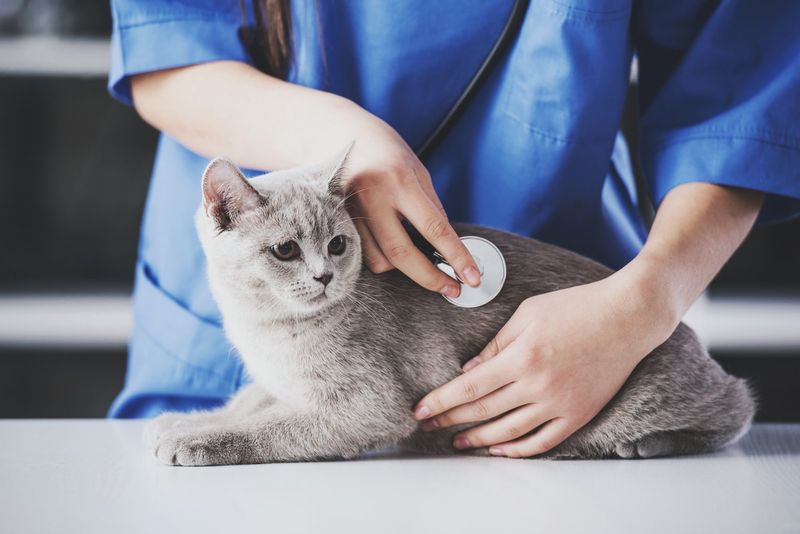
Cats hide pain masterfully – it’s a survival instinct from their wild ancestors. Health issues often go unnoticed until seriously advanced.
Annual wellness exams catch problems early before they cause suffering. Familiarize your cat with carriers and car rides gradually between appointments. Preventative care creates less stress than emergency treatment for advanced conditions.






